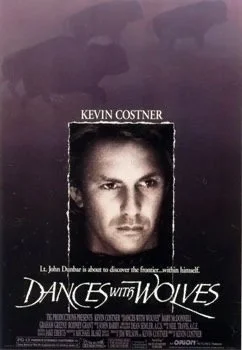Director: Kevin Costner
Cast: Kevin Costner, Mary McDonnell, Graham Greene, Rodney Grant
Have I Seen it Before: Never. I’m not entirely sure why, but a nearly four hour run time has probably scared me off for over thirty years. Is it even possible to get a hold of the theatrical cut—the one that everyone loved so damned much—on disc?
Did I Like It: It’s rare that a four hour movie becomes is best self in the final quarter of the runtime. All of the fat in this special edition cut is up front. Sure, a little bit of Dunbar’s (Costner, pulling Welles-ian triple duties as Star, Director, and Producer) life before coming to the frontier can buttress not just character development but story logic, but the full hour we spend seeing him encounter death in the Civil War, becoming an improbable war hero, requesting to escape the world around him in favor of the frontier, finding that frontier does not reflect his prejudices, and then embracing his isolation could have been—and presumably, were—handled with much more brevity in another version of the film.
Characters like Major Fambrough (Maury Chaykin) and Timmons (Robert Pastorelli) might even be able to prop up an entire (probably less affecting) film in their own right. Here, they are merely added color to fuel a plot that should have already been underway by the time they are dispatched. By the end of the film, I’m feeling a great deal of affection and sadness for the Sioux as depicted here, and have all but forgotten the early parts of the film which dragged. In fact, the only thought I give the first hour is wondering how in the hell Dunbar survived a quickly infecting wound at the time that he did.
All of this is symptomatic of a problem Costner would display to greater detriment later in his career. As an actor, he has a fine presence. Sure, he would be miscast in things like Robin Hood: Prince of Thieves (1991), and astonishingly well-case (if underserved by the writing) in Man of Steel (2013), but he is certainly a movie star for the ages. As a behind-the-scenes force he was far too over validated far too early in is attempts, that he lost all sense of what is (or ought) to be part of the film at hand, and what isn’t. Thus, we’re eventually left with things like Waterworld (1995) and The Postman (1997). Art thrives in restriction, so there was very little hope that an expanded cut of Dances with Wolves would somehow improve upon what might have rationalized such an exercise in the first place.

